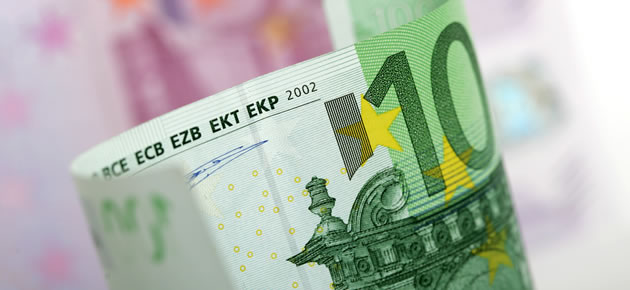The Pound edged higher against the Euro on Monday as concerns over the situation in Ukraine weighed upon the single currency, and as inflation data came in below forecasts.
According to data released by the Luxembourg based European Union statistics office, Eurostat, Euro-area inflation slowed unexpectedly in February, spooking investors and putting pressure back onto the European Central Bank after policy makers dismissed the threat of deflation last week.
The data showed that consumer prices grew by a yearly figure of 0.7%, down from the 0.8% recorded in the first month of the year. The figure was below the initial estimate and expected figure of 0.8%. The report shows that the rate of inflation in the Eurozone has been below 1% for the past five months.
Also weighing upon the Euro were comments made by European Central Bank President Mario Draghi who suggested that the strength of the Euro is keeping prices subdued at the Central Bank’s last policy meeting.
“The strengthening of the effective Euro exchange rate over the past one-and-a-half years has certainly had a significant impact on our low rate of inflation and, given current levels of inflation, is therefore becoming increasingly relevant in our assessment of price stability,” Mr. Draghi said.
The situation in Ukraine is also impacting the Euro. Market sentiment remains under pressure after the referendum in the Crimea showed that voters favoured joining the Russian Federation. Tensions increased after the West said that it rejected the votes result and warned that it was preparing to impose sanctions on Moscow.
The Euro is forecast to remain vulnerable for the rest of the week as the Ukraine situation unfolds.
Key events for the Euro this week –
Tuesday March 18th – Eurozone balance of trade
Wednesday March 19th – Eurozone construction output
Euro (EUR) Exchange Rates
[table width=”100%” colwidth=”50|50|50|50|50″ colalign=”left|left|left|left|left”]
Currency, ,Currency,Rate ,
Euro,
Euro,
Euro,
Euro,
British Pound,
[/table]
